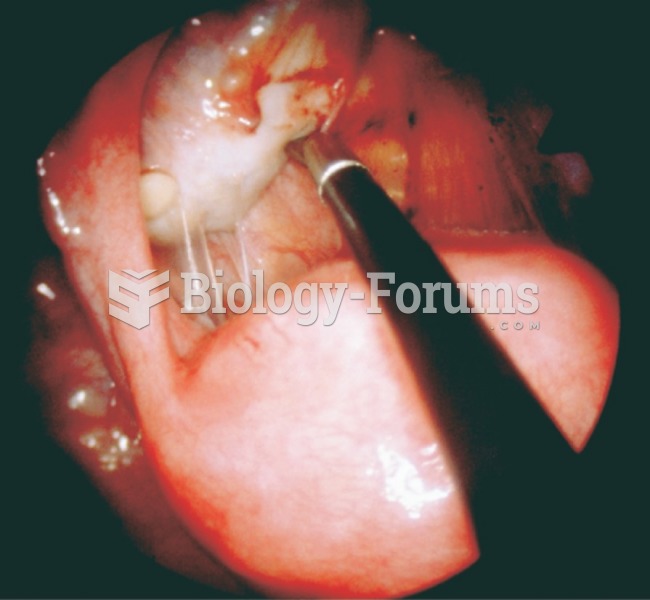|
|
|
The top 10 most important tips that will help you grow old gracefully include (1) quit smoking, (2) keep your weight down, (3) take supplements, (4) skip a meal each day or fast 1 day per week, (5) get a pet, (6) get medical help for chronic pain, (7) walk regularly, (8) reduce arguments, (9) put live plants in your living space, and (10) do some weight training.
Over time, chronic hepatitis B virus and hepatitis C virus infections can progress to advanced liver disease, liver failure, and hepatocellular carcinoma. Unlike other forms, more than 80% of hepatitis C infections become chronic and lead to liver disease. When combined with hepatitis B, hepatitis C now accounts for 75% percent of all cases of liver disease around the world. Liver failure caused by hepatitis C is now leading cause of liver transplants in the United States.
A strange skin disease referred to as Morgellons has occurred in the southern United States and in California. Symptoms include slowly healing sores, joint pain, persistent fatigue, and a sensation of things crawling through the skin. Another symptom is strange-looking, threadlike extrusions coming out of the skin.
Aspirin is the most widely used drug in the world. It has even been recognized as such by the Guinness Book of World Records.
The human body produces and destroys 15 million blood cells every second.
 Amniocentesis. In this examination procedure, amniotic fluid is aspirated with a syringe that is ins
Amniocentesis. In this examination procedure, amniotic fluid is aspirated with a syringe that is ins
 The process of learning to read involves physical and socioemotional development, changes in the ...
The process of learning to read involves physical and socioemotional development, changes in the ...




